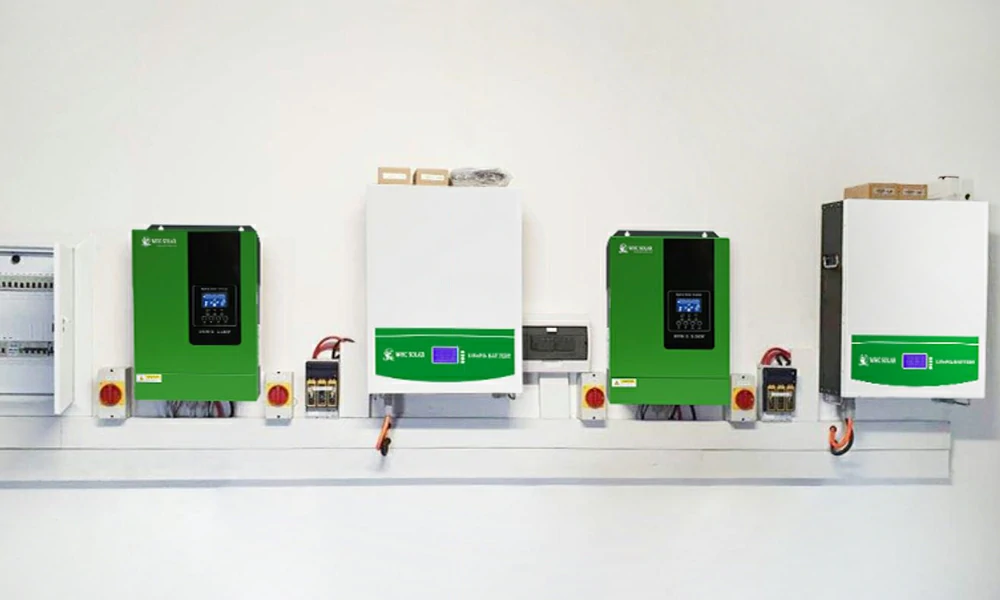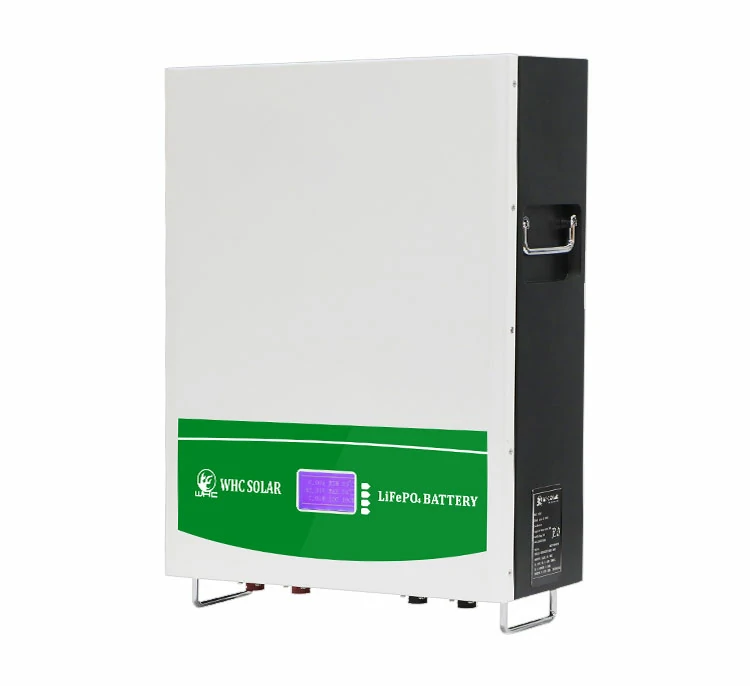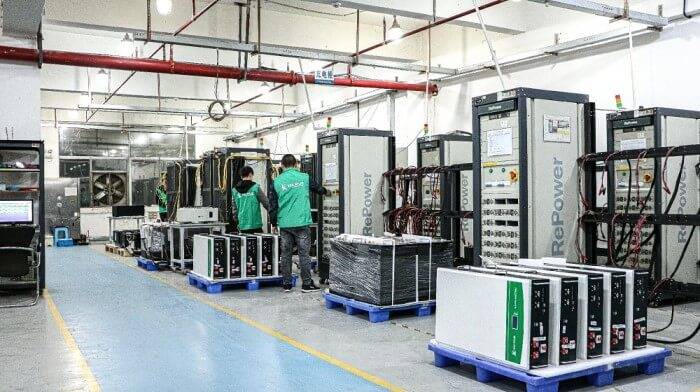With so many available options, it can be overwhelming to know which solar battery best fits different needs, especially for businesses that rely on energy. Choosing the best from the different types of batteries used in solar power systems involves thoroughly planning the business’s electrical needs and comparing them to the 5 types of solar battery options available.
In this blog, we make solar battery types comparisons and provide the information needed to choose the best solar battery for specific situations, including factors such as battery capacity, applications, efficiency, and lifespan, as well as important considerations such as cost, maintenance, and safety. We also discuss the tips for choosing solar batteries and other salient points.
What Are Solar Batteries?
Solar batteries, also known as solar energy storage systems or solar power banks, are devices that can store electrical energy generated by solar panels for later use. Solar batteries store charges when the sun is out and shining and make the energy stored available for use when the sun sets.
Solar batteries can help increase the reliability of solar energy systems by providing backup power during power outages and reducing the need to rely on the electric grid.
What Are the Applications of Solar Batteries?

Solar batteries rely on renewable energy from the sun, which is free and abundant. This makes them an attractive option for people or businesses looking to reduce their reliance on fossil fuels and decrease their carbon footprint.
Solar batteries can be used in various applications, from small-scale residential installations to large-scale commercial or utility projects. They can be used to power everything from lights and appliances to entire buildings or even electric vehicles.
The applications of solar batteries include:
- Home domestic appliances
- Lighting
- Industrial equipment
- Energy storage system
- Power inverter
- Grid support
Types of Solar Batteries
The common types of solar batteries are flooded and sealed lead acid batteries, LiFePO4 solar batteries, Lithium-ion, Nickel-cadmium, and flow batteries. These different types of solar batteries have their advantages and most suitable area of application.
Lead acid
Lead-acid battery types for solar systems comprise lead plates and an electrolyte solution of sulfuric acid, which reacts with the lead plates to produce a flow of electrical current. They are usually low-cost. Hence they are a popular battery in use for different applications.
Lead-acid batteries come in two main types: flooded and sealed.
Flooded lead acid battery for solar power
Flooded lead-acid batteries are a type of rechargeable battery commonly used in solar power systems. They are called “flooded” because they contain a liquid electrolyte solution of sulphuric acid that floods the lead plates inside the battery.
Sealed lead acid battery for solar system
Sealed lead-acid, otherwise known as SLA batteries, are types of solar batteries that can be used in solar power systems. They are called “sealed” because they are designed to be completely closed and do not require regular checking of the water levels or cleaning of the battery terminals.
The other type of sealed lead-acid battery is a gel solar battery. Gel type battery for solar is one of the best types of lead acid battery used in solar systems. The silica gel in deep-cycle gel batteries suspends in the sulfuric acid, giving the battery greater stability.
Pros:
- Affordability: Lead-acid batteries are one of the most affordable options for solar power storage. They are widely available and have been used for decades in many different applications, making them popular for business operations, especially small businesses.
- Safety: While the flooded lead acid batteries might not be safe because they are prone to spillage, gel type solar battery is considered safe to use because they do not contain any liquid electrolyte. Therefore, there is no risk of leakage or spillage.
- Recyclability: Lead-acid batteries are highly recyclable and can be reused for many applications. Many lead-acid batteries contain up to 80% recycled lead.
- Reliability: These batteries have a long track record of reliable performance, which explains why they are a popular choice for critical applications.
- Temperature adaptability: Lead-acid batteries can handle extreme temperatures, making them suitable for use in both hot and cold climates.
Cons:
- Limited lifespan: Lead-acid batteries have a limited lifespan and typically last 3-5 years.
- Maintenance: Flooded lead-acid batteries require regular maintenance, including checking the water levels and cleaning the battery terminals. Solar battery gel type and sealed lead-acid batteries require lesser maintenance.
- Slow charging and discharging: Lead-acid batteries charge and discharge more slowly than some other types of batteries used for solar systems.
Best for: Lead-acid batteries are the best type of batteries for solar power in situations where cost is a significant consideration, and the system is not required to be lightweight or compact.
LiFePO4

LiFePO4 (Lithium Iron Phosphate) solar batteries have been argued to be the best types of batteries used in solar power systems. They are a type of lithium battery that uses LiFePO4 as the cathode material, which offers several advantages over other types of lithium batteries.
Pros:
- High energy density: LiFePO4 batteries have a high energy density, which means they can store a lot of energy in a small and light package. This makes them ideal for use in portable electronic devices and solar energy systems.
- Long cycle life: LiFePO4 batteries have a long cycle life, which means they can be charged and discharged many times without degrading their performance.
- Temperature resilience: LiFePO4 batteries can operate at a wide range of temperatures without suffering from significant degradation in performance.
- Safety: LiFePO4 batteries are considered safer than lithium-ion batteries, as they are less prone to overheating or catching fire. This is due to their stable chemistry and the use of non-flammable electrolytes.
- Fast charging: LiFePO4 batteries can be charged quickly and efficiently, which makes them a convenient option for portable devices and solar energy systems that need to be charged quickly.
Cons:
- Cost: LiFePO4 batteries are typically more expensive than other types of batteries, such as lead-acid batteries. However, they offer a longer cycle life and higher energy density, making them more cost-effective in the long run.
- Lower voltage: LiFePO4 batteries have a lower voltage than other types of batteries, such as lead-acid batteries. This means that more batteries may be needed to achieve the same voltage level, which can increase the overall cost and complexity of the system.
Best for: LiFePO4 batteries are best for portable solar power systems, backup power, EV, and other solar energy applications.
Lithium-ion
A lithium-ion solar battery typically consists of several lithium-ion cells connected in series or parallel to increase the voltage or capacity. It is designed to store the energy generated by solar panels during the day and release it when needed.
Pros:
- High Energy Density: Lithium-ion batteries can store much energy in a small space, making them ideal for use in solar power systems where space is limited.
- Longer Lifespan: Lithium-ion batteries have a longer lifespan. Depending on usage, they can last up to 10 years or more.
- Fast Charging: Lithium-ion batteries can be charged quickly, which is beneficial for solar power systems, as it allows for quicker charging times during periods of low sunlight. Also, they do not have any memory effect, meaning they do not need to be fully discharged before recharging.
Cons:
- Safety Concerns: Lithium-ion batteries can be dangerous if they are not used and stored correctly. If they are damaged or punctured, they can catch fire or explode.
- Temperature Sensitivity: Lithium-ion batteries are sensitive to temperature changes, and if they get too hot or too cold, their performance can be affected, and they can even be damaged.
- Recycling Challenges: Lithium-ion batteries can be difficult and expensive to recycle, leading to environmental concerns and issues with waste management.
Best for: Lithium-ion batteries are lightweight and portable, making them ideal for applications where mobility is required.
Nickel cadmium
A Nickel-cadmium (Ni-Cd) battery is a rechargeable battery that uses nickel oxide hydroxide and metallic cadmium as electrodes and potassium hydroxide as an electrolyte.
Pros:
- Wide temperature range: Nickel cadmium batteries can operate in various temperatures, making them suitable for use in both hot and cold environments.
- Long Cycle Life: Ni-Cd batteries have a long cycle life, meaning they can be recharged and discharged many times before needing to be replaced.
- High Discharge Rate: Ni-Cd batteries can deliver high discharge rates, making them suitable for applications requiring high power output.
- Low Self-Discharge Rate: Ni-Cd batteries have a low self-discharge rate, which means they can hold their charge for a long time when not in use.
Cons:
- Toxicity: Nickel-cadmium batteries contain toxic chemicals, including cadmium and nickel, which can pose a risk to human health and the environment if not disposed of properly.
- High Maintenance: Ni-Cd batteries require regular maintenance, including periodic deep discharge cycles, to prevent the memory effect and maximize their lifespan.
- Lower Energy Density: Ni-Cd batteries have a lower energy density. They are larger and heavier for a given energy storage capacity.
Best for: They are suitable for hot or extremely cold climates.
Flow
A flow battery, also known as a redox flow battery, is a rechargeable battery that uses two chemical components dissolved in liquids, separated by a membrane.
Pros:
- Long Lifespan: Flow batteries have a long lifespan, as the liquid electrolytes can be easily replaced without affecting the battery’s overall performance. This makes them a cost-effective option in the long run.
- High Efficiency: Flow batteries have high efficiency. They can convert a high percentage of stored energy into usable electricity.
- Safety: Flow batteries are considered safer than other battery types, as the chemicals used in the battery are non-toxic and non-flammable.
Cons:
- Higher Cost: Flow batteries are generally more expensive than other battery types due to their complex design and the need for additional components.
- Lower Energy Density: Flow batteries have a lower energy density than other battery types, meaning they are larger and heavier for a given energy storage capacity.
- Limited Power Density: Flow batteries have a lower power density than other battery types, meaning they may not be able to deliver high power output in short periods. This can make them less suitable for high-power output applications, such as electric vehicles or grid-level energy storage systems.
Best for: Flow solar batteries are best suited for applications requiring long-duration energy storage and high reliability.
Tips for Choosing Solar Battery Types
The following tips will help to choose the best type of solar battery for different businesses.
Application/Battery Size
The first step in selecting a solar battery is to determine its application. This includes considering the intended use of the battery, such as whether it will be used in an off-grid or grid-tied solar system or for backup power. It is also essential to consider the power requirements of the intended application, as this will impact the size and capacity of the needed battery.
After deciding on the application and intended use of the battery, it is vital to match the needs with the size of the battery to choose. The best battery type for solar is the one that meets the power requirement it is meant for and is equally well-sized to fit in perfectly.
Cost
When choosing a solar battery as a power source for a business, it’s important to consider the total cost of the solar battery. It includes not just the upfront cost of the battery but also its expected lifespan, efficiency, and maintenance requirements. A battery with a higher upfront cost may be more economical in the long run if it has a longer lifespan, higher efficiency, and lower maintenance requirements.
While some solar battery types can be relatively cheap to acquire, they have a short lifespan and require routine maintenance that requires cash. If bought, they may cost more than the costly alternative in the long run.
Battery Capacity
Battery capacity is one of the most important factors to consider when choosing a solar battery for a solar energy system. Battery capacity refers to the amount of energy a battery can store, usually measured in kilowatt-hours (kWh).
As a business owner, choosing a battery with a capacity that meets the required energy needs of the business is important. The size of the solar battery should be based on the amount of energy that is needed to be stored in order to provide the needed energy.
Before choosing a solar battery, it is expected that the power rating of appliances and the overall energy consumption are documented. This will help to make an informed decision on which type of solar battery is the best for the business.
Battery Lifetime
The lifespan of a battery is an important consideration when choosing a solar battery, as it determines how long the battery will be able to provide reliable performance before needing to be replaced. Battery lifespan is typically measured in terms of the number of charge-discharge cycles the battery can undergo before its capacity and performance degrade significantly.
For example, a typical lead-acid battery may last between 200-1000 cycles depending on the type and usage pattern, while a Li-ion battery can last up to several thousand cycles. Therefore, a battery with a longer lifespan can offer a more cost-effective and sustainable solution for storing solar energy compared to a battery with a shorter lifespan.
In terms of battery lifetime, the best solar battery type is the one that has a longer lifespan or discharge cycle.
Efficiency
Efficiency is an important factor to consider when choosing a solar battery because it affects how much energy from the solar panels is stored in the battery for later use.
Battery efficiency is expressed as a percentage and is the ratio of the amount of energy that can be stored in the battery compared to the amount of energy that is put into the battery. For example, if you put 100 watt-hours of energy into a battery, but only 80 watt-hours can be stored, the battery efficiency would be 80%.
Higher battery efficiency means that more of the energy generated by the solar panels is stored in the battery. In terms of efficiency, the best type of battery for solar is the one with the highest efficiency.
Power Rating
Power rating is an important consideration when choosing a solar battery, as it refers to the maximum amount of power that a battery can deliver at a given time. Power rating is typically expressed in watts (W) or kilowatts (kW), determining the amount of energy a battery can supply to a load or system.
The power rating of a solar battery should be chosen based on the specific requirements of the solar energy system it will be used in. For example, if the system will be used to power large or multiple loads simultaneously, a higher power rating may be required to ensure an adequate energy supply.
When choosing a solar battery based on power rating, it’s important to consider both the maximum and sustained power ratings. The maximum power rating refers to the maximum amount of power that the battery can deliver for a short period, such as a few seconds or minutes. The sustained power rating, on the other hand, refers to the amount of power that the battery can deliver continuously over a more extended period of time.
WHC Solar: Making the Best Battery Types for Solar

WHC Solar has experience manufacturing different solar battery types and sizes of high-quality. We are a leading company for different solar generators and systems types.
WHC solar takes pride in producing 3 of the best and most popular battery types for solar systems. This battery includes the following:
- Gel Battery
WHC solar gel batteries are designed to be durable and high quality. These types of batteries used in solar systems are designed to be highly efficient and give the users value for their money.
Features of WHC solar gel batteries
- Performs well in high temperature
- Maintenance-free, there is no need to add water.
- 85% charging efficiency
- High-quality 17A large plate that discharges large current
- The long service life of 500 to 800 deep discharge cycles
- Lead-acid battery
WHC solar lead-acid batteries are of top quality. To ensure the quality and stability of each battery, professional testing equipment is used to bring the batteries to a high industrial standard. Also, high-quality materials are used to give the users value for their money, and to meet their electrical needs in the best way possible.
Features of WHC solar lead-acid batteries
- 85% charging efficiency
- There is no need to add water inside
- High-purity raw material ensures a low self-discharge rate
- Little maintenance needed
- The long service life of 500 to 800 deep discharge cycles
- LiFePO4 battery
WHC solar LiFePO4 batteries are made to be portable and lightweight, making them suitable as mobile power sources. They are also made from high-quality materials, which is why they are very efficient solar batteries.
Features of WHC solar LiFePO4 batteries
- 100% Discharge Efficiency
- Designed to handle 149℉(65℃) temperature
- Beautiful design with easy installation
- Super Long Cycle-Life of 2000-6000 deep discharge cycles.
Takeaways
It is commonly believed that LiFePO4 battery is one of the best types of solar battery because of the combination of high energy density, long lifespan, safety, high efficiency, and environmental friendliness. But of all the 5 types of solar batteries discussed, the best battery is the one most suitable to serve the purpose it is needed for.
WHC Solar offers the best quality Gel batteries, lead-acid batteries, and LiFePO4 that have been tested and guaranteed for optimum performance.
To further decide which solar battery best suits your business needs, it will be best to contact our expert team.
